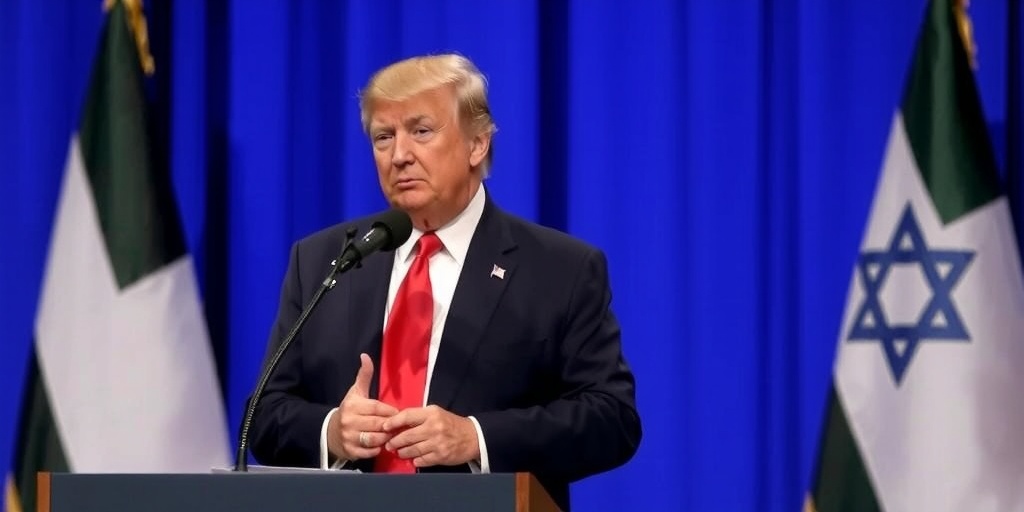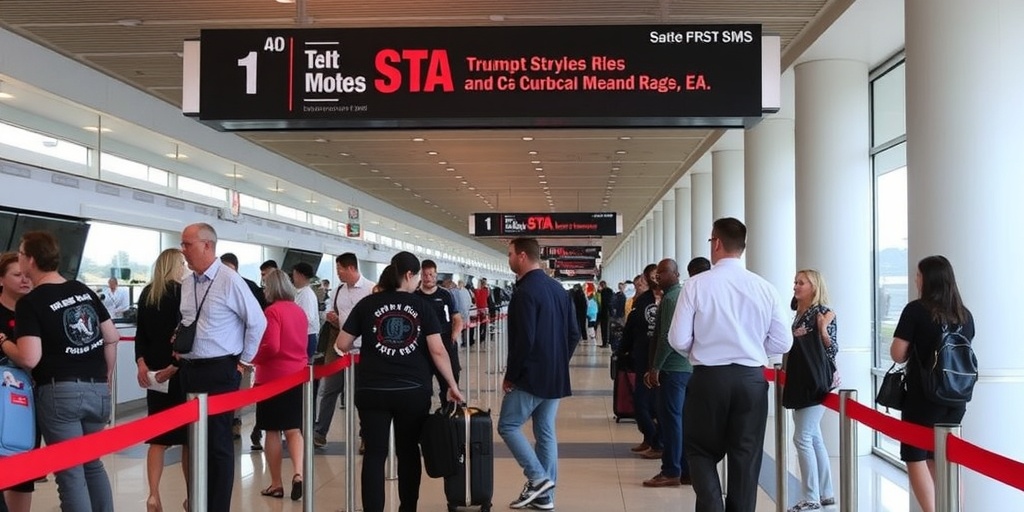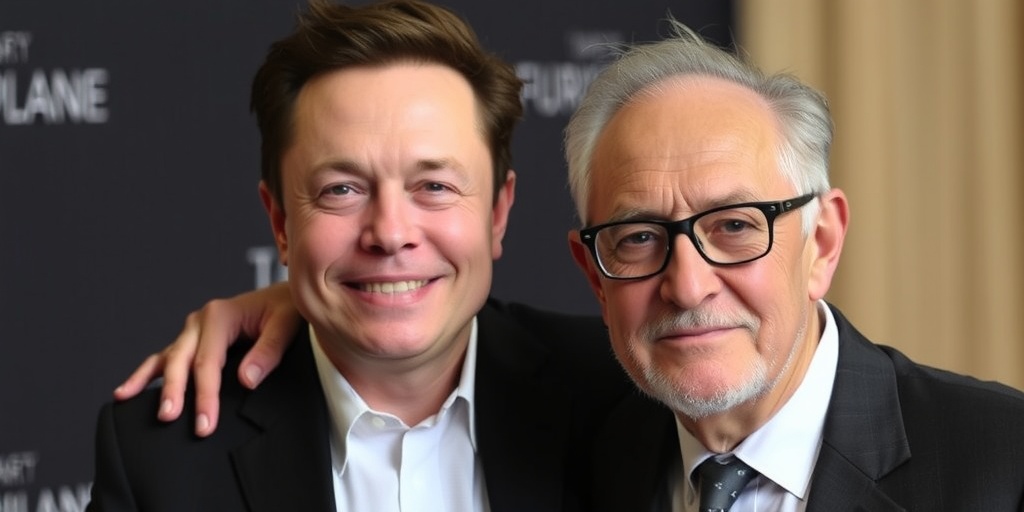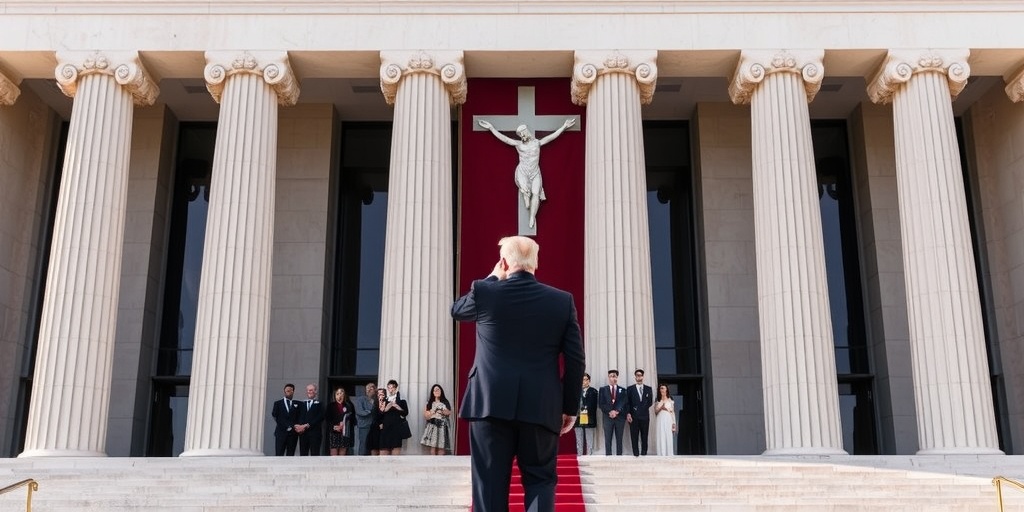Now Reading: Trump Reconsiders Gaza Plan Amid Lack of Support from Egypt and Jordan
-
01
Trump Reconsiders Gaza Plan Amid Lack of Support from Egypt and Jordan
Trump Reconsiders Gaza Plan Amid Lack of Support from Egypt and Jordan

Trump Reassesses Gaza Proposal Amidst Regional Resistance
In a recent development, former President Donald Trump has seemingly reconsidered his controversial proposal to relocate two million Palestinians from the Gaza Strip to neighboring countries in the Middle East. This plan, which included the United States taking control of the region to transform it into what he termed “the Riviera of the Middle East,” has faced significant pushback from regional leaders.
Earlier in February, Trump publicly stated his intention for the U.S. to take over Gaza, suggesting that the current Palestinian residents should be displaced as part of this initiative. He expressed confidence in his ability to persuade leaders of Egypt and Jordan to accept the incoming Palestinian population despite their outright rejections of the proposal. "They say they’re not going to accept," Trump claimed at the time, asserting, "I say they will."
However, during a telephone interview with Fox News host Brian Kilmeade, Trump appeared to concede that his attempts to persuade these leaders had not been successful, acknowledging the unlikelihood of implementing his plan. He remarked, “Well, we pay Jordan and Egypt billions of dollars a year. And I was a little surprised they’d say that, but they did.” This admission indicates a shift in Trump’s approach, suggesting he would take a step back from the demands of his ambitious proposal and allow the situation to unfold naturally.
The evolution of Trump’s stance highlights a broader theme of uncertainty surrounding his foreign policy decisions. This specific proposal was one of the boldest and most contentious foreign policy ideas articulated by a sitting president, and it drew mixed reactions from both domestic and international audiences. Following Trump’s initial assertions, multiple high-ranking officials from his administration, including Secretary of State Marco Rubio and White House Press Secretary Karoline Leavitt, attempted to clarify that any relocation would be temporary. Nevertheless, Trump continued to emphasize his vision through social media, advocating for a permanent resettlement of Palestinians in more hospitable environments where they would presumably be “happy, safe, and free.”
Now, however, in his dialogue with Kilmeade, Trump shifted to suggest that the strategy of redeveloping Gaza without relocating its current residents would be practically unfeasible, mainly due to the ongoing presence of Hamas, the Islamist militant group that has governed the region for years. He reiterated his view that a U.S. takeover along with the displacement of the Palestinian population would provide a better option for the territory’s future.
“The U.S. would own the site,” Trump asserted, adding that this change would eliminate the presence of Hamas and provide a fresh start for the region’s development. Yet, he spoke about this plan in a past tense, implying a newfound resignation. “I liked my plan. I thought my plan was good,” he stated, reminiscing about his vision of removing the current inhabitants to establish a thriving, beautiful community.
Despite the apparent softening of his position, questions remain about the overall trajectory of U.S. involvement in Gaza. A spokesperson for the National Security Council was approached for comments regarding Trump’s remarks but did not respond to queries related to whether these comments signify an abandonment of plans for U.S. involvement in reconstructing Gaza.
In the context of regional dynamics, Trump’s remarks reflect a complex interplay between U.S. foreign policy ambitions and the realities on the ground. While he seems to acknowledge the impracticality of his previous proposals, he continues to express a desire to see Gaza’s potential realized. His thoughts on Israel’s historical decisions regarding Gaza hint at a lingering interest in U.S. oversight over the territory, questioning why Israeli leadership allowed the region to slip from their control.
As the global community watches, Trump’s narrative surrounding Gaza continues to evolve, full of assertion and retreat, resonating with a broader challenge faced by international leaders attempting to navigate the intricate landscape of Middle Eastern geopolitics. The future of Gaza remains uncertain, particularly amidst the unresolved tensions between competing stakeholders and the complexities inherent in seeking a lasting peace in the region.
Stay Informed With the Latest & Most Important News
Previous Post
Next Post
-
 01New technology breakthrough has everyone talking right now
01New technology breakthrough has everyone talking right now -
 02Unbelievable life hack everyone needs to try today
02Unbelievable life hack everyone needs to try today -
 03Fascinating discovery found buried deep beneath the ocean
03Fascinating discovery found buried deep beneath the ocean -
 04Man invents genius device that solves everyday problems
04Man invents genius device that solves everyday problems -
 05Shocking discovery that changes what we know forever
05Shocking discovery that changes what we know forever -
 06Internet goes wild over celebrity’s unexpected fashion choice
06Internet goes wild over celebrity’s unexpected fashion choice -
 07Rare animal sighting stuns scientists and wildlife lovers
07Rare animal sighting stuns scientists and wildlife lovers





















